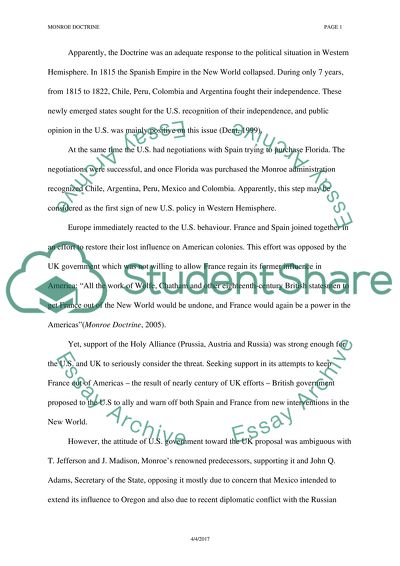Cite this document
(“Monroe Doctrine Essay Example | Topics and Well Written Essays - 2500 words”, n.d.)
Retrieved from https://studentshare.org/history/1522707-monroe-doctrine
Retrieved from https://studentshare.org/history/1522707-monroe-doctrine
(Monroe Doctrine Essay Example | Topics and Well Written Essays - 2500 Words)
https://studentshare.org/history/1522707-monroe-doctrine.
https://studentshare.org/history/1522707-monroe-doctrine.
“Monroe Doctrine Essay Example | Topics and Well Written Essays - 2500 Words”, n.d. https://studentshare.org/history/1522707-monroe-doctrine.


